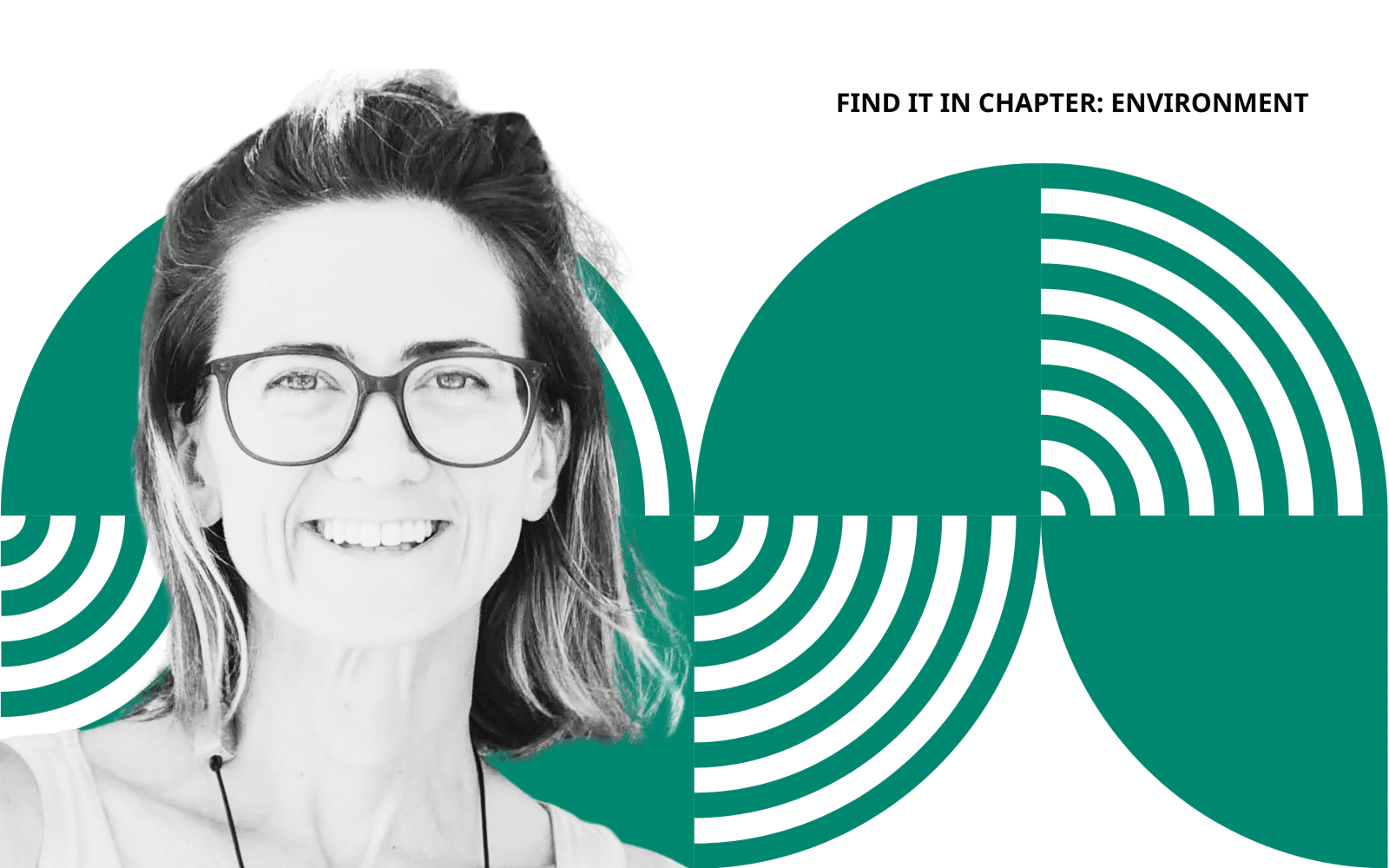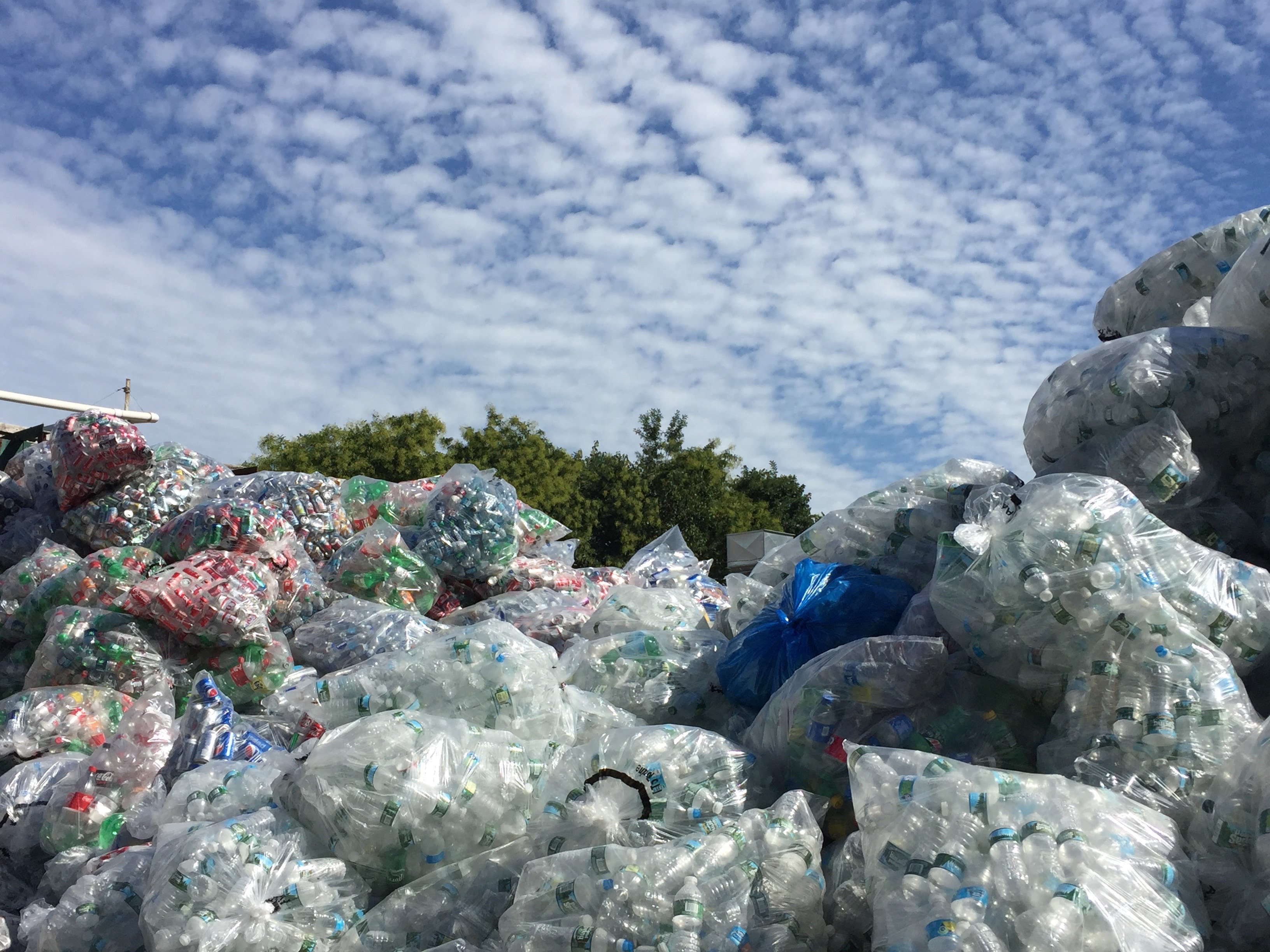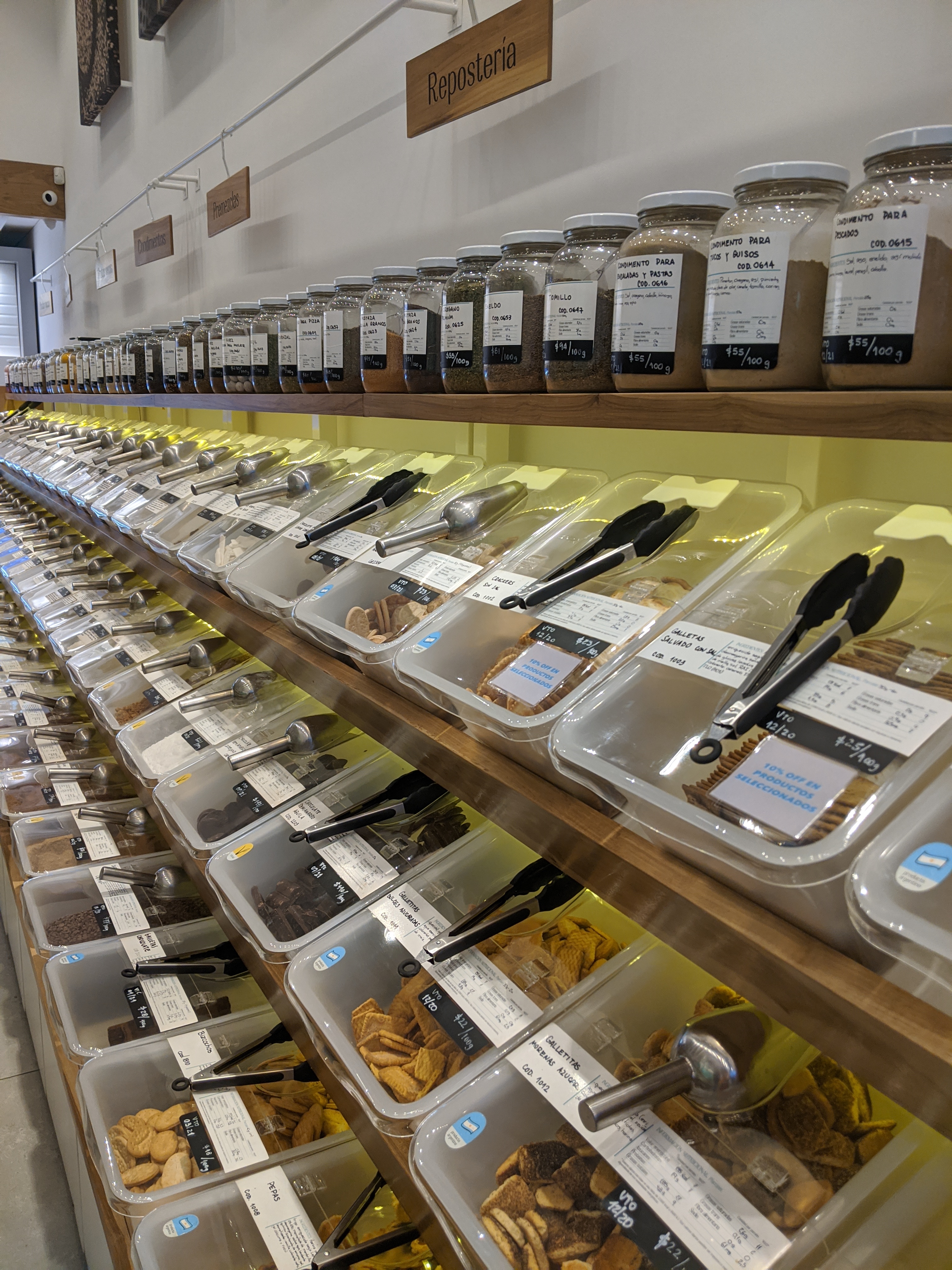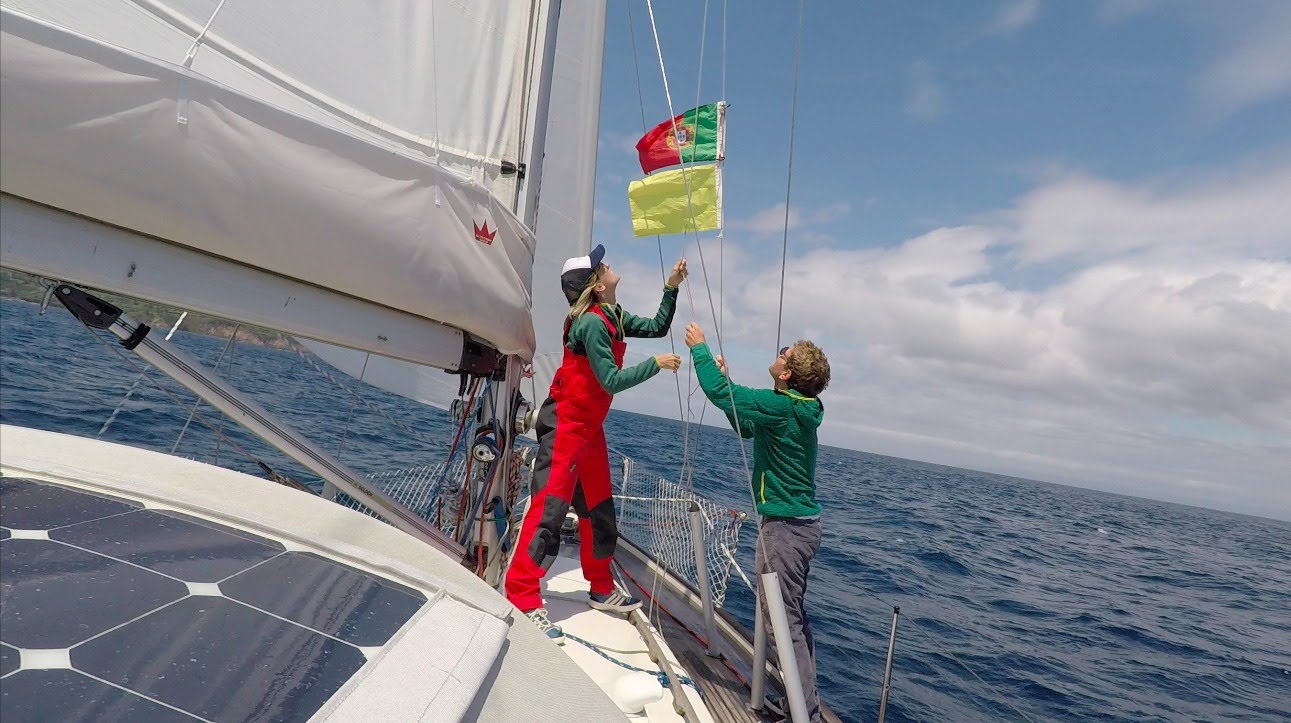Agustina Besada
Co-Founder & CEO, Unplastify
Fellow project website: www.unplastify.com
Through her organization Unplastify, Agustina is reducing the use of plastic by equipping individuals and companies with tools to design, implement, and share solutions for eliminating plastic in their environments.

THE NEW IDEA
Agustina is systemically changing people’s relationship with plastic. Under the slogan of “Unplastifying” organizations and daily life, Agustina guides companies, government agencies and individuals to create both new consumption habits and new production and distribution processes to reduce their use of plastic. Unplastify implements this change directly through tailored programs for corporations, government agencies, and schools, through financial incentives, with scientific research and dissemination, and in public and social media campaigns.
Agustina’s approach leads participants to audit their plastic use and design their own “de-plastification” strategies to reduce their use, promoting ownership of both the plastic problem and its possible solutions, and making commitments to behavioral change.
Agustina’s work is transforming public understanding into action. She argues that changing our relationship with plastics requires sustained action and a cultural system that provides meaning. Consequently, her programs and public challenges promote reflection by participants about their relationship to plastic and to the planet, as well as new, enforceable rules to incorporate de-plastifying habits.
In a few short years, Unplastify has worked with large multinational grocers and fast-food companies to redesign entire production lines and packaging; retailers, to adopt re-fillable containers at points of distribution; Argentine municipal and federal governments to change regulations around single-use plastic; and over 300 schools with the ‘Unplastify App,’ which guides students to design de-plastifying schemes for their classrooms and homes. To provide a financial incentive, Agustina’s group developed the ‘Unplastify Coin’ (UPFC), a blockchain protocol that verifies a company’s reduction of single-use plastic and awards credits that can be exchanged on bitcoin platforms. In under two years, the Swiss Medical Group, the grocery conglomerate Carrefour, cleaning company Melcity, and the industrial food supplier Cookmaster earned credits for reducing over 200 tons of plastic from their production lines. Through its research and development lab, Unplastify validates scientific information about plastic pollution and solutions that is then used to guide clients. Finally, Unplastify has developed a network of influential science and social media ambassadors to further spread its message. Agustina herself used a seven-month sailing trip to Argentina to research plastic pollution in the ocean and documented it as a NatGeo explorer.

"Besada crossed the Atlantic Ocean in a 36-foot sailboat — twice — to research ocean plastics and to study international scalable solutions. She transformed this adventure into action founding Unplastify, a social enterprise on a mission to change the human relationship with plastic, accelerating systemic changes to minimize the use of single-use plastic.”
National Geographic
THE PROBLEM
Plastic production has grown exponentially over the past decades, and it’s estimated that by 2050 there will be more plastic than fish in the oceans if global patterns don’t change. According to the Plastics Europe 2021 re-port, 367 million tons of plastic were produced world-wide in 2020 alone, the equivalent of one million tons of plastics per day. Sadly, waste management systems are wholly inefficient: only 9% of the total plastic produced from the 1950s to 2015 have been recycled. 79% ended up in landfills or was lost in the environment; 12% was incinerated. Without a robust recycling infrastructure, approximately 8 million metric tons of plastic pieces find their way into the ocean each year.
"[UnPlastify’s] goal is nothing more and nothing less than to change the relationship between humans and plastic.”
Forbes
As a consequence, plastic waste is affecting the health of the oceans, animals, and people. Over 700 marine species have been affected by plastic pollution through entanglements, suffocation, or poisoning. Microplastics have even been found in abiotic ocean products like sea salt, and the toxic chemicals attached to microplastics are now polluting the ocean food chain. In humans, toxins released by ingested plastics harm fertility and weaken the immune system. A Newcastle University study concluded that a person could eat approximately 5 grams of plastic each week, the equivalent of one credit card per week. Even though it may seem indirect, we are all being affected.
Our systems of consumption and production reinforce negative and perpetual effects of the problem. What we throw away ends up being “someone else’s problem”, thus making the global plastic issue invisible. Approxi- mately 42% of all plastics produced have been used for packaging -- i.e., single-use -- even though the material does not biodegrade and is virtually indestructible. Consumers are unaware, or not prompted to acknowledge, the lifecycle of a material that takes hundreds of years to break down. Companies and consumers benefit from the seemingly low cost of plastic as a component in manufacturing and packaging because they ignore, and don’t directly bear, the true cost of its ultimate disposal. The petroleum industry views plastics as a major growth market, and the main industrial users (Coca-Cola, Pepsi, Nestle, and Unilever) prioritize plastic packaging as a cheaper alternative to aluminum cans. Incentives to sustainably manage plastics are scattered, and the companies producing plastics have no incentive to recover the material.
Yet public awareness and activism are growing. Cities and countries across the world have passed legislation that regulates single-use plastics, and many others have pro- posed laws related to the issue. Argentina implemented two de-plastification regulations in 2020: A microbeads law and a ban on single-use plastics in national parks, with several proposed laws in Congress that aim to reg- ulate disposable plastics. But these approaches focus on the symptoms -- a lack of recycling capacity -- and not on the root of the problem, the abusive and uncontrolled production of plastic.
THE STRATEGY
Unplastify’s work is guided by three strategic principles: (1) positive messaging to encourage action, (2) personal responsibility for changemaking and (3) scaling and expanding to multiply impact. To help people and insti-tutions rethink and redesign their relationship to plastic, Agustina and her team propose de-plastification pro-cesses by combining exploration, education, action, and working with multiple stakeholders including schools, individuals, companies and industries to change public law and policy.
Beginning with the youngest actors, Agustina works with schools and sailing clubs through educational chal-lenges. Using the Unplastify app, adolescents aged 15-16 work in teams to design a project prototype that solves one aspect of plastic pollution. In a playful way, they learn how to present the problem and get support for their solution while developing their leadership, communication, impact generation, and cooperation skills.
"She promotes solutions for a more circular economy and reduction of plastic ocean pollution through regular workshops and talks that draw from her hands-on experience”
UNA-NYC
Agustina believes that children and youth are the best change agents for their environments, and her educational programs empower and equip them for this purpose. Since 2019 Unplastify has delivered its school program in 343 educational institutions, reaching almost 16,000 students with talks and workshops. Over 4,000 students have actively designed and developed un-plas-tifying projects. In one workshop, students designed a campaign to promote COVID prevention without us-ing hand sanitizer in plastic bottles. Another group re-searched the most popular cookies in their school and the packaging waste these cookies generated. Their research convinced the local bakery to make cookies in bulk for them! The Unplastify app guides young people step-by-step with a scoring system and cooperative lead-ership and is designed for scale. National Geographic, Disney and 11th Hour Racing are partners in expanding the initiative to 100 new schools in eight countries.
"The [UnPlastify] challenge made it possible to generate education and dissemination actions in pursuit of waste separation and reduction in the City of Buenos Aires. Unplastify provided pedagogical support for the different activities that teachers were able to develop online with their students.”
Buenos Aires Ciudad
Moving up the chain, Agustina targets mass consumer companies to help them redesign their relationships with plastics in both internal operations and external products and services. With Unplastify’s guidance, companies diagnose their plastic use, measure their impact, and co-create and implement new de-plasitification strategies. As part of the solution, a company will approach new suppliers aligned to this purpose and redesign its products and processes accordingly. To date, Unplastify has worked with 60 corporations, including 16 large mul-tinationals, in the de-plastification of their organizations, with a special focus on packaging to ensure that products are as environmentally friendly as possible from development onward.
Successful examples include the 2019 work Unplastify did with an Argentine fast-food company to identify and design alternatives for products and operations, com-paring solutions by impact and cost. The project showed that implementing “de-plastification” strategies in only four types of products - beverages, salads, appetizers, and cutlery - would represent the reduction of 89% of all disposable plastic diagnosed. Since there were no inter-national measurement standards, Agustina developed a new methodology to measure the company’s plastic footprint. This is now the ‘Unplastify Footprint’ measurement, to diagnose and measure the avoided plastic after implementation.
The major supermarket chain Carrefour hired Agustina and her group to reduce its use of plastic in packaging. By changing the packaging for 337 of its products, Un-plastify estimates that between 2018 and 2021, Carrefour managed to avoid 752 tons of disposable plastic, with the greatest impact in food and cleaning products. Management at Carrefour’s headquarters recognized Unplastify’s work as an innovative practice that they will replicate globally.

Photo Credit: Augustina Besada
Additional clients include a large cleaning supply retailer, which Unplastify helped guide to change distribution by transporting its products in bulk. The company installed 1-ton drums, refilled by trucks, and both corporate and individual consumers now refill reusable containers. 39,101 pounds of plastic were avoided between July 2020 and July 2022.
In 2021, Unplastify launched The Unplastify Certification (UPFC), a network certification that verifies the reduction of single-use plastic in a traceable manner. It is issued based on the analysis and community validation of a company’s Unplastify Footprint. With the certification, companies publicly demonstrate their impact and increase the transparency of their plastic reduction. For each ton of plastic avoided, they receive an exchange-able credit on blockchain that can then be sold to companies willing to become plastic-neutral. The value of these credits increases as more companies sign on and demonstrate the reputational benefits of cutting out plastic. Five corporations have registered with UPFC and are now earning and trading credits. It is an innovation still under development, which Agustina and her team are confident will scale and create new market incentives for businesses.

At the policy level, Agustina and her team continue push-ing for new laws and regulations. In 2020 they created the online platform argentinanodescarta.org, or ‘Argentina Does Not Dispose,’ through which 100 municipalities from around the country register their preventative regulations and practices regarding single-use plastics. In the same year, Unplastify designed a project to de-plastify Argentina’s House of Representatives and has since been working with members of parliament and the Chamber of Plastics to draft and pass a law progressively banning single-use plastics.
Through its research and content production arm, the Unplastify Lab, the group validates science around plastic pollution, measures the innovative solutions its clients create, and disseminates its research. Together with the lab, Agustina documented her 2018 oceanic crossing, in which she collected first-hand information about the state of the oceans and the presence of plastics. In 2021, Unplastify launched the report ‘Current State of De-Plastification Regulations in Argentina’ to make visible the current regulations around single-use plastic and to provide a tool to promote new regulations. A new report auditing key players across Latin America is underway. Unplastify has also contributed to an ambitious global treaty that addresses global plastic pollution.
Agustina has also designed a strategy of movement multipliers, the Unplastify Ambassadors, who develop paths to change the narrative around plastic through storytelling. The ambassadors are famous sports players, chefs, and artists committed to the cause, who use their professions to demonstrate creative ways everyone can contribute to this change. Agustina understands that raising awareness one person at a time isn’t possible, but Unplastify can empower those who understand this challenge to become changemakers themselves and propel others forward.
Agustina’s goal for 2025 is to deplastify 1 million people, who will reduce at least 20% of their annual plastic consumption. This goal would translate into a reduction of 10 million tons of plastic, which is more than the 8 mil-lion tons that enter the oceans each year. Influencing big companies, deepening their knowledge of the plastics industry, and adding new key partners as they work to change laws are the key pieces of Agustina’s future strategies.
Ever since her school days, Agustina has been fascinated with the wasted value of things that were thrown away. At age seven she began to participate in a school-based recycling initiative, which motivated her to convince her building’s superintendent and neighbors to set aside re- cyclable materials instead of throwing them out. Around the same time, she would ride her bike around the neighborhood with a friend, looking for bottles to recycle. At age 13 she became involved in an extracurricular school activity, supporting rural education in the north of Argen- tina, in which she participated in fundraising and awareness activities.
Because of family influences, she decided to study medicine, as she thought it was a career path that would al-low her to best help people. One trip to Patagonia with friends ended up being the fork in the road when she realized she did not want to be a physician, so she took a year off to discover her true calling. During that time, she learned about industrial design and was fascinated with the combination of people-based designs and solutions to real problems. Determined to deepen her knowledge and tools, Agustina completed a master’s degree in Sus-tainability Studies at Columbia University.
"Now with her feet on solid ground, this year Besada and her team will continue their awareness work through educational programs in schools in Argentina, Uruguay, and Chile.”
A.lat
THE PERSON
While visiting a friend in a New York neighborhood, she discovered the recycling center Sure We Can. Motivated by her curiosity, she immediately became a volunteer. The center’s director eventually invited her to be part of the board. A few months later, the director invited Agustina to take her own job. Directing the center was a transformational experience as well as an important laboratory on the plastics problem. Working with recyclers every day, Agustina came to understand the problem and that the solution would not be found in recycling but would instead come from preventing the problem in the first place.
When Agustina and her husband decided to return to Argentina, they made the trip by boat. They were at sea for seven months, during which she was a National Geographic explorer. They took samples of the ocean’s plastics during the trip and collaborated with experts and organizations in Europe working on the same issue. In that sailboat, the idea of Unplastify was born.